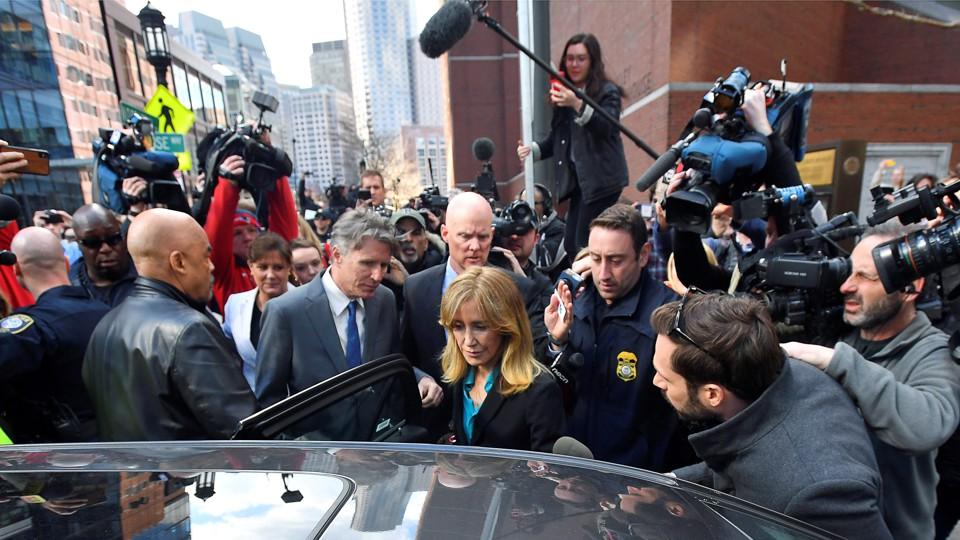They Had It Coming

Updated at 5:23 p.m. ET on April 9, 2018.
Sweet Christ, vindication!
How long has it been? Years? No, decades. If hope is the thing with feathers, I was a plucked bird. Long ago, I surrendered myself to the fact that the horrible, horrible private-school parents of Los Angeles would get away with their nastiness forever. But even before the molting, never in my wildest imaginings had I dared to dream that the arc of the moral universe could describe a 90-degree angle and smite down mine enemies with such a hammer fist of fire and fury that even I have had a moment of thinking, Could this be a bit too much?
Let’s back up.
Thirty years ago, having tapped out of a Ph.D. program, I moved to Los Angeles (long story) and got hired at the top boys’ school in the city, which would soon become co-educational. For the first four years, I taught English. Best job I’ve ever had. For the next three, I was a college counselor. Worst job I’ve ever had.
When I was a teacher, my job was a source of self-respect; I had joined a great tradition. I was a young woman from a certain kind of good but not moneyed family who could exchange her only salable talents—an abiding love of books and a fondness for teenagers—for a job. Poor, obscure, plain, and little, I would drive through the exotic air of early-morning Los Angeles to the school, which was on a street with a beautiful name, Coldwater Canyon, in a part of the city originally designated the Central Motion Picture District. It sat on a plot of land that in the 1920s composed part of the Hollywood Hills Country Club, an institution that has a Narnia-like aspect, in that not even the California historian Kevin Starr knew whether it ever really existed, or whether it was merely a fiction promoted by real-estate developers trying to entice new homeowners to the Edenic San Fernando Valley. Across from a round tower connecting the upper and lower campuses was Saint Saviour’s, a chapel that the founders of the school built in 1914 as an exact replica of the one built in 1567 for the Rugby School in England, with pews facing the center aisle in the Tudor style. This combination of the possibly imaginary country club and the assumption behind the building of the chapel—get the set right, and you can make the whole production work—seemed to me like something from an Evelyn Waugh novel. But it also meant that—unlike Exeter or Choate—this school was a place where I could belong. There were no traditions, no expectation of familiarity with the Book of Common Prayer. All you needed to have was a piercing love of your subject and a willingness to enter into an apprenticeship with great teachers. I had those things.
[Read: What the scammers got right about college admissions]
This was before cellphones and laptops, and in the chalk-dusted eternity of a 42-minute class period, there was such a thrumming, adolescent need for stimulation that when I opened whatever book we were reading—all of them great, all of them chosen by teachers far more thoughtful and experienced than I—and began reading aloud, the stream of words was the only thing going, and many of the students couldn’t help themselves from slipping into that stream and letting it carry them along.
I met a traveller from an antique land,
Who said—“Two vast and trunkless legs of stone
Stand in the desert …. Near them, on the sand,
Half sunk a shattered visage lies
I did not come from a
You’re reading a preview, subscribe to read more.
Start your free 30 days





